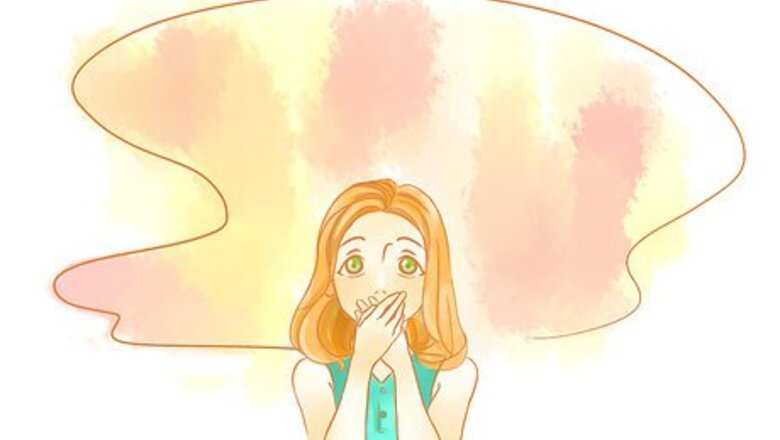
views
Put yourself in the other person's shoes.

How would you feel if someone eavesdropped on a private conversation? Imagine you have some sensitive issue you need to discuss with someone. You find a trusted person (parent, teacher, best friend, therapist, etc), muster your courage and tell this person your situation. Now, imagine that someone who has no respect for your situation or your privacy comes listening in for their personal amusement. Keep that feeling in mind, and decide to do the right thing.
Recognize that eavesdropping is serious.

Eavesdropping is disrespectful and it can even be a form of betrayal. Eavesdropping on a private conversation is not something that's slightly out-of-line. It's not like being late, it's not like cutting in a line-up, and it's often even worse than name-calling. It's also not like sneaking up to someone and saying 'boo' or throwing a snowball at them while their back is turned. Eavesdropping cannot be shrugged off with a "nobody's perfect," "we all have our faults" or in any way be overlooked by others as long as you're otherwise a nice person. (You'll never be seen as "a nice person with a big nose") The feelings that an eavesdropped person often feels are that of trespass, betrayal, breach of trust and confidentiality, hurt and humiliation. These feelings are difficult to dispel even with an apology, let alone the eavesdropped person being able or willing to shrug or laugh them off. On a moral scale, eavesdropping is about on the same level as following a person everywhere they go and looking at them, laying your hand on a sensitive part of a person's body, or having an affair.
Understand that eavesdropping can be dangerous.

If vulnerable people don't feel safe discussing their issues, they might not seek help. When people cannot trust that their conversation is kept between them and their intended recipient alone, important, sensitive issues could go unreported. In other words, an eavesdropped person may be left feeling like they can never discuss anything private ever again, and this could have grave outcomes if ever they're being bullied, abused, have mental issues, witness child abuse, or otherwise need help in the future.
Avoid trying to justify your actions.

Eavesdropping violates other people's privacy, so it's not okay. Some eavesdroppers try to justify their eavesdropping by saying that the other person doesn't know, so they're not hurt by the action. Therefore, the eavesdropper will eavesdrop, in secret, for their personal amusement, and then not tell anyone what they did, nor disclose to anyone what they heard. However, this does not justify eavesdropping. In fact, you are effectively lying to the people conversing that their conversation is being kept private, when it isn't. Think of it this way: would you feel comfortable having a private conversation with someone if someone else MIGHT be listening in? Maybe your conversation is kept private, but maybe it isn't? Probably not. Also, using lack of knowledge to justify eavesdropping would, by extension, justify other surreptitious wrongs, such as cheating in a relationship, being a peeping tom, shoplifting without getting caught, cheating on a test or "buying" a paper for school, or a crematorium keeping a body for research and giving the family pretend ashes. No knowledge does not mean no victim. Besides, if you had any respect for the people having the private conversation, you would WANT their conversation to remain private between the two of them.
Evaluate the legal implications.

In some situations, eavesdropping is illegal. This is often true if an auditory or recording device is used to eavesdrop, in which case it's called "bugging" and you can go to jail for it. Eavesdropping with the ear alone is not generally considered illegal, but it is unethical, seriously wrong, and the damage is still the same.
Ask yourself "Do I really need to know this?"

Most of the time, other people's private lives or info won't affect you. Apart from gratification or amusement, eavesdropping doesn't produce a great outcome. How does it harm you to not know another person's private life or information? You may be left feeling like you don't know everything, but hey, nobody knows everything anyway, nor can anybody know everything, so there's no harm done. Some things are unknown because they're meant to be that way.
















Comments
0 comment